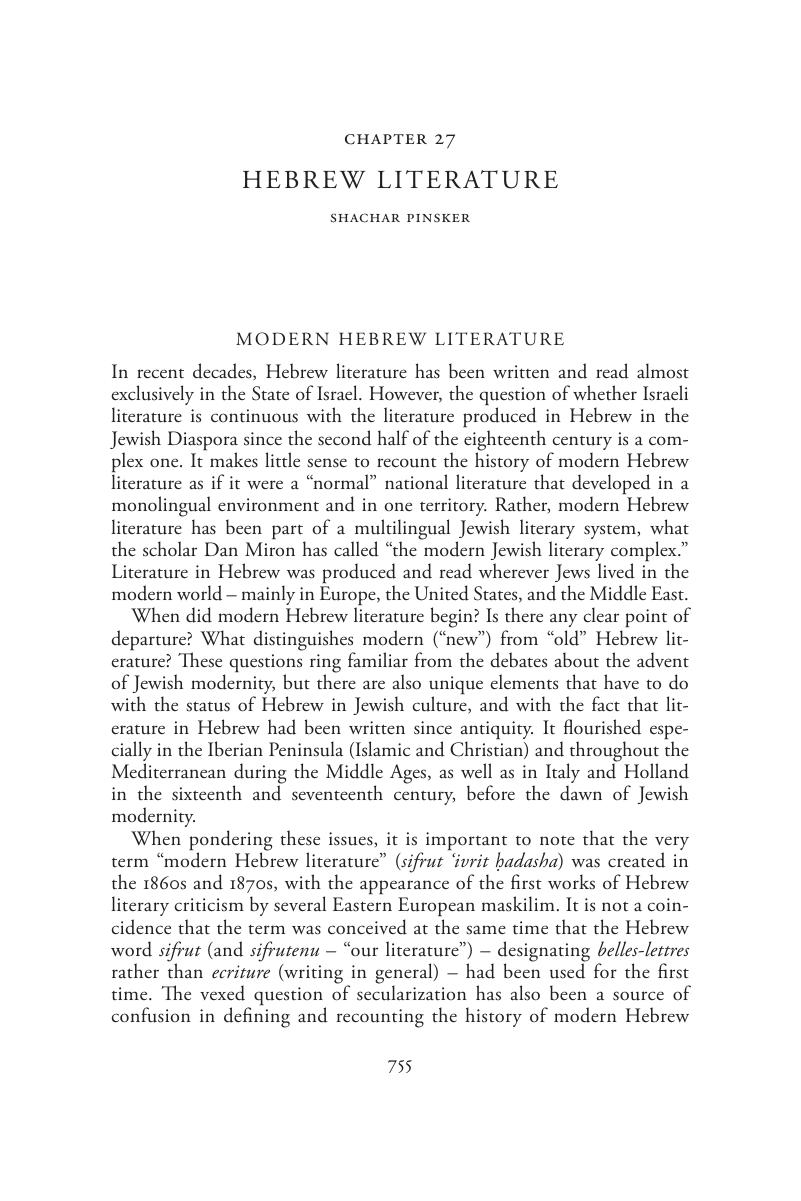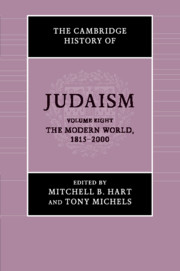Book contents
- The Cambridge History of JudaismVolume Eight
- The Cambridge History of Judaism
- The Cambridge History of Judaism
- Copyright page
- Contents
- Acknowledgments
- Introduction
- Part I History and Geography
- Part II Emancipation:
- Part III Jewish Cultures, National and Transnational
- Chapter 24 Jewish Culture: What Is It?
- Chapter 25 Sephardic and Mizraḥi Literature
- Chapter 26 Anglophone Literature
- Chapter 27 Hebrew Literature
- Chapter 28 Yiddish Literature
- Chapter 29 Jewish StudiesHistory, Memory, Scholarship
- Chapter 30 Jews and Material Culture
- Chapter 31 Jews and Popular Culture in the Twentieth Century
- Chapter 32 Jews and Popular Culture in the Twentieth Century
- Part IV Jews in the Modern World
- Index
- References
Chapter 27 - Hebrew Literature
from Part III - Jewish Cultures, National and Transnational
Published online by Cambridge University Press: 21 September 2017
- The Cambridge History of JudaismVolume Eight
- The Cambridge History of Judaism
- The Cambridge History of Judaism
- Copyright page
- Contents
- Acknowledgments
- Introduction
- Part I History and Geography
- Part II Emancipation:
- Part III Jewish Cultures, National and Transnational
- Chapter 24 Jewish Culture: What Is It?
- Chapter 25 Sephardic and Mizraḥi Literature
- Chapter 26 Anglophone Literature
- Chapter 27 Hebrew Literature
- Chapter 28 Yiddish Literature
- Chapter 29 Jewish StudiesHistory, Memory, Scholarship
- Chapter 30 Jews and Material Culture
- Chapter 31 Jews and Popular Culture in the Twentieth Century
- Chapter 32 Jews and Popular Culture in the Twentieth Century
- Part IV Jews in the Modern World
- Index
- References
Summary

- Type
- Chapter
- Information
- The Cambridge History of Judaism , pp. 727 - 754Publisher: Cambridge University PressPrint publication year: 2017



